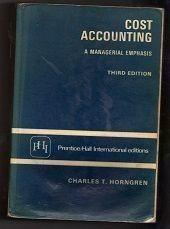Question
MaryJanes Smoke Shoppe, Inc. has operated for the past six years without the benefit of an accountant or bookkeeper. With the legalization of marijuana, MaryJanes
MaryJanes Smoke Shoppe, Inc. has operated for the past six years without the benefit of an accountant or bookkeeper. With the legalization of marijuana, MaryJanes hires the CPA firm Earnest and Whiney to sort out its financial records and books. Six months ago, Earnest and Whiney prepared audited financial statements of MaryJanes and rendered an unqualified opinion. Earnest and Whineys opinion failed to reflect MaryJanes precarious financial position. MaryJanes gave Earnest and Whineys audit opinion to Last National Bank. The Bank loaned MaryJanes $10 million based on Earnest and Whineys opinion. The following year MaryJanes went into bankruptcy. There is no evidence that MaryJanes acted improperly before, during, or after the audit.
1. Suppose that Last National Bank sues Earnest and Whiney for negligence in California. What is the likely result?
a. Last National Bank must prove that it was in privity or a privity-like relationship,
with Earnest and Whiney to prevail.
b. Last National Bank wins if it was reasonably foreseeable to Earnest and Whiney that it
would rely on the financial statements if prepared for MaryJanes.
c. Last National Bank wins if it is amongst a limited class of intended uses for whose
benefit the financial statements were prepared.
d. Last National Bank only needs to establish is that its damage was caused by Earnest
and Whineys failure to act as a reasonable CPA firm.
2. Suppose that MaryJaness sues Earnest and Whineys for damages. What is the likely result?
a. Earnest and Whiney win if it proves that it performed the audit in good faith.
b. Earnest and Whiney wins because it did not intentionally fail to discover MaryJanes
precarious financial condition.
c. MaryJaness wins if Earnest and Whiney failed to conduct its audit as a reasonable CPA
firm would have acted.
d. MaryJanes wins only if Earnest and Whiney acted recklessly.
--------------------------------------------------------------------------------------------------------------
Diffrent question:
Ms. Creant is majoring in ethics at U.C. Santa Clara. One day she suffers a catastrophic lapse of ethical judgment, and she is stopped and arrested for shoplifting Problems in Legal Ethics, by Mortimer D. Schwartz from the campus bookstore. After regaining her "ethical balance", Ms. Creant pleads guilty. Which of the following is true:
a. The double jeopardy clause of the Fifth Amendment precludes the campus bookstore
from suing Ms. Creant for the costs associated with her shoplifting detention and arrest.
b. Ms. Creant's guilty plea cannot be used against her should the bookstore bring a civil action.
c. Ms. Creant can be criminally charged, sued civilly by the bookstore for conversion, and
placed on academic probation by U.C. Santa Clara.
d. Ms. Creant may be subjected to criminal and civil penalties but principles of "triple
jeopardy" as articulated by the E Pluribus Unum doctrine prevents her from being subject
to academic sanctions.
---------------------------------------------------------------------------------
Diffrent question
Ms. Iveta Mertinak found a Juicy Couture cashmere sweater at the local Nordstrom department store, which she considered purchasing but did not. After getting home, she changed her mind. Her roommate was going to the same store, so Ms. Mertinak asked the roommate to pick up the sweater for her. Ms. Mertinak gave her credit card to her roommate and said, Just sign my name; you know they never check the signature. The roommate purchased the item with Ms. Mertinaks credit card and signed Ms. Mertinaks name. Has the roommate committed forgery?
a. Yes, because the roommate misrepresented that she was Ms. Mertinak.
b. Yes, because forgery occurs whenever one person signs the name of another.
c. No, because the store did not realize that the roommate was not Ms. Mertinak.
d. No, because the roommate did not intend to defraud either Ms. Mertinak or the store.
e. No, because Ms. Mertinak is always liable for charges on her credit card.
Step by Step Solution
There are 3 Steps involved in it
Step: 1

Get Instant Access to Expert-Tailored Solutions
See step-by-step solutions with expert insights and AI powered tools for academic success
Step: 2

Step: 3

Ace Your Homework with AI
Get the answers you need in no time with our AI-driven, step-by-step assistance
Get Started


